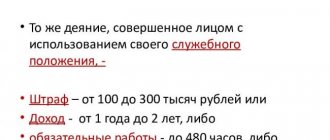Theft is the theft of property belonging to other people for personal gain.
The actions of attackers are regarded as theft if:
- The animal was seized without the owner's knowledge.
- The kidnapper acted secretly (there were no witnesses, or he did not know about their existence).
- The kidnapper acted openly, but using deception or fraud. For example, receiving a puppy of an elite breed in exchange for a deliberately false promise to provide payment in the near future.
- His act was selfish.
The subject of the theft in pet theft is the animal itself. This may include cattle, dogs, cats, poultry, horses and other animals.
It is important to consider that a pet, from the point of view of the object of theft, is property belonging to its owner (Article 137 of the Civil Code). Moreover, this property has value not only in the market, but also in terms of the profit it generates. Thus, a cow systematically produces milk, which its owner can sell. And a dog of an elite breed can bring puppies to the owner for sale.
The subject of theft is a criminal who commits theft for personal gain. The actions of this citizen are illegal in nature, since he illegally seizes a pet without the knowledge of its owner.
The object of theft is the owner’s property relationship with the animal (possession, use, disposal).
An important component when considering cases of animal theft is the moral side of the issue. Animals are a category of property that, due to their animation, has a special status. To some extent, they are a person's friends and family members. Therefore, their theft may be associated with moral damage.
Normative base
Animal theft is regulated by two legislative acts - the Administrative Code and the Criminal Code.
An animal is the property of the owner, therefore its illegal seizure is qualified as theft of property (Article 158 of the Criminal Code).
For petty theft up to 1000 rubles, the punishment is determined in accordance with Art. 7.27 Code of Administrative Offences.
Dog theft, Article 158 of the Criminal Code of the Russian Federation
Theft is an illegal activity of a person aimed at illegally taking property.
It is carried out both in the presence of the owner, owner, and in their absence. And if we are talking about the theft of an animal, then the measure of responsibility is determined by the amount of damage that was caused to the owner of the animal: 2) if the owner of the stolen property (pet) estimates the damage in the amount of more than 1000 rubles, then the person responsible for the crime
What article does pet theft fall under?
In addition to theft (Article 158 of the Criminal Code of the Russian Federation), crimes against property include:
- selfish (Articles 163, 165 of the Criminal Code of the Russian Federation) and non-selfish acts (Articles 167, 168 of the Criminal Code of the Russian Federation);
- other thefts (Articles 159-162 and Article 164 of the Criminal Code of the Russian Federation).
As for domestic and farm animals, theft is the most common.
Art. 158 of the Criminal Code of the Russian Federation combines common signs of theft. This is the unlawful gratuitous seizure or use of someone else's property, committed for selfish purposes, as a result of which real damage is caused to the owner.
Features of dismissal and assignment of responsibility when theft is detected
Money from the cash register
If you detect the disappearance of funds from the company's cash register, follow the instructions below. You need:
- issue an order to withdraw cash from the cash register and identify the missing amount;
- conduct an inventory of property;
- ask for an explanation from the cashier;
- contact the police.
Director of LLC
Theft is the appropriation of SOMEONE else's property. Material assets owned by an LLC are not the property of the founder and director. This means that if a director embezzles from an enterprise, he can be held accountable. This requires a statement from the injured party and identification of all the elements of the crime.
Problems arise with such an element of composition as the subjective side. It is difficult to prove that the director of a company has a selfish goal and a desire to cause material damage to his own company. However, if there are facts about the illegal withdrawal of funds and personal enrichment, directors are successfully brought to justice for official theft.
You can learn more about the elements of the crime of theft here.
Punishment for theft
If the owner of an animal estimates its value at 1,000 rubles or less, then the theft is considered petty (Article 7.27 of the Administrative Code). In this case, the offender faces a fine (up to five times the value of the property), administrative arrest (15 days - maximum period), compulsory work (maximum - 50 hours).
Petty thefts are:
- for 1 thousand rubles or less;
- committed as part of theft, embezzlement, fraud, embezzlement (robbery or robbery is no longer petty theft);
- not accompanied by aggravating circumstances in the form of preliminary conspiracy, penetration into housing, use of official position and other circumstances from Art. 158, 160 CC.
Also read: What is intent and its types in simple words with examples
In the presence of aggravating circumstances, theft is a criminal offense, even if the amount stolen is less than 1 thousand rubles.
The preventive measure for theft in the amount of more than 1 thousand rubles is determined according to the criteria specified in Art. 158 of the Criminal Code.
Thus, in case of actions of several persons by prior conspiracy, in case of entry into a premises or home on illegal grounds, in case of causing significant damage, in case of theft on a large scale, the following is imposed:
- fine (maximum – 500 thousand rubles);
- average income (up to 3 years);
- compulsory work (maximum 480 hours);
- correctional labor (maximum 2 years);
- forced labor (maximum – 5 years);
- imprisonment (maximum 6 years).
When an animal is stolen by an organized group or when theft is committed on an especially large scale, the preventive measure is imprisonment (up to 10 years).
If the dog cost less than 2,000 rubles
If the dog cost less than 2,000 rubles, then such an act may be recognized not as theft, but as petty theft, and then it falls under the Code of Administrative Offenses of the Russian Federation, which does not entail a criminal record.
In this case, the decisive factor is whether related actions were committed that entail criminal liability regardless of the value of the dog. For a list of such actions, see this link.
Administrative liability for dog theft
For the theft of a dog worth up to 1,000 rubles, the following liability is provided:
- a fine in the amount of up to five times the value of the stolen property, but not less than one thousand rubles;
- or administrative arrest for up to fifteen days;
- or compulsory work for up to fifty hours.
For the theft of a dog worth from 1000 to 2000 rubles, the following liability is provided:
- a fine in the amount of up to five times the value of the stolen property, but not less than three thousand rubles;
- or administrative arrest for a period of ten to fifteen days;
- or compulsory work for a period of up to one hundred and twenty hours.
Legislative regulation
Article 7.27 of the Code of Administrative Offenses of the Russian Federation, petty theft (version current for 2018)
- Petty theft of someone else's property, the value of which does not exceed one thousand rubles, by theft, fraud, misappropriation or embezzlement in the absence of signs of crimes provided for in parts two, three and four of Article 158, Article 158.1, parts two, three and four of Article 159, parts two , third and fourth article 159.1, parts two, third and fourth article 159.2, parts second, third and fourth article 159.3, parts second, third and fourth article 159.5, parts second, third and fourth article 159.6 and parts second and third article 160 criminal Code of the Russian Federation, except for the cases provided for in Article 14.15.3 of this Code - (as amended by Federal Law dated 02/05/2018 N 13-FZ)
punishment: entails the imposition of an administrative fine in the amount of up to five times the value of the stolen property, but not less than one thousand rubles, or administrative arrest for up to fifteen days, or compulsory labor for up to fifty hours.
- Petty theft of someone else's property worth more than one thousand rubles, but not more than two thousand five hundred rubles by theft, fraud, misappropriation or embezzlement in the absence of signs of crimes provided for in parts two, three and four of Article 158, Article 158.1, parts two, three and four of Article 159, parts two, three and four of Article 159.1, parts two, three and four of Article 159.2, parts two, three and four of Article 159.3, parts two, three and four of Article 159.5, parts two, three and four of Article 159.6 and parts two and third article 160 of the Criminal Code of the Russian Federation, with the exception of cases provided for in article 14.15.3 of this Code - (as amended by Federal Law dated 02/05/2018 N 13-FZ)
punishment: entails the imposition of an administrative fine in the amount of up to five times the value of the stolen property, but not less than three thousand rubles, or administrative arrest for a period of ten to fifteen days, or compulsory labor for a period of up to one hundred and twenty hours.
If the dog cost more than 2000 rubles
If the stolen dog was worth more than 2,000 rubles, much more serious liability arises - criminal liability.
Criminal liability for stealing a dog
For the theft of a dog worth more than 2,000 rubles, the following liability is provided:
- a fine of up to eighty thousand rubles or in the amount of the wages or other income of the convicted person for a period of up to six months;
- compulsory work for a period of up to three hundred and sixty hours;
- or correctional labor for up to one year;
- or restriction of freedom for a term of up to two years;
- or forced labor for up to two years;
- or arrest for up to four months;
- or imprisonment for a term of up to two years.
Also read: How the termination of a criminal case and criminal prosecution occurs: grounds and procedure
Legislative regulation
- Theft, that is, the secret theft of someone else’s property, –
shall be punishable by a fine in the amount of up to eighty thousand rubles, or in the amount of the wages or other income of the convicted person for a period of up to six months, or by compulsory labor for a term of up to three hundred sixty hours, or by corrective labor for a term of up to one year, or by restriction of liberty for a term of up to two years. , or forced labor for a term of up to two years, or arrest for a term of up to four months, or imprisonment for a term of up to two years.
- Theft committed:
a) by a group of persons by prior conspiracy;
b) with illegal entry into the premises or other storage;
c) causing significant damage to a citizen;
d) from clothes, bags or other hand luggage that were with the victim –
shall be punishable by a fine in the amount of up to two hundred thousand rubles, or in the amount of the wages or other income of the convicted person for a period of up to eighteen months, or by compulsory labor for a term of up to four hundred eighty hours, or by corrective labor for a term of up to two years, or by forced labor for a term of up to five years. with restriction of freedom for a term of up to one year or without it, or imprisonment for a term of up to five years with restriction of freedom for a term of up to one year or without it.
- Theft committed:
a) with illegal entry into a home;
b) from an oil pipeline, oil product pipeline, gas pipeline;
c) on a large scale, –
shall be punishable by a fine in the amount of one hundred thousand to five hundred thousand rubles, or in the amount of the wages or other income of the convicted person for a period of one to three years, or by forced labor for a term of up to five years with or without restriction of freedom for a term of up to one and a half years, or imprisonment for a term of up to six years with a fine in the amount of up to eighty thousand rubles or in the amount of the wages or other income of the convicted person for a period of up to six months or without it and with restriction of freedom for a term of up to one and a half years or without it.
- Theft committed:
a) an organized group;
b) on an especially large scale, –
shall be punishable by imprisonment for a term of up to ten years with or without a fine in the amount of up to one million rubles or in the amount of the wages or other income of the convicted person for a period of up to five years and with or without restriction of freedom for a term of up to two years.
notes. 1. Theft in the Articles of this Code means the illegal gratuitous seizure and (or) conversion of someone else’s property for the benefit of the perpetrator or other persons, committed for mercenary purposes, causing damage to the owner or other holder of this property.
- Significant damage to a citizen in the Articles of this chapter, with the exception of part five of Article 159, is determined taking into account his property status, but cannot be less than five thousand rubles.
- In the Articles of this chapter, premises are understood as buildings and structures, regardless of the form of ownership, intended for the temporary residence of people or the placement of material assets for production or other official purposes.
In the Articles of this chapter, storage means utility premises separated from residential buildings, areas of territory, pipelines, and other structures, regardless of the form of ownership, that are intended for permanent or temporary storage of material assets.
- Large size in the Articles of this chapter, with the exception of parts six and seven of Article 159, Articles 159.1, 159.3, 159.5 and 159.6, is recognized as the value of property exceeding two hundred and fifty thousand rubles, and especially large - one million rubles.
Also read: Definition of multiple crimes in criminal law: signs and types
Criminal liability for theft regardless of the value of the dog
if theft is committed:
- by a group of persons by prior conspiracy;
- with illegal entry into the premises or other storage;
- causing significant damage to a citizen;
- from clothes, bags or other hand luggage that were with the victim;
- with illegal entry into a home;
- from an oil pipeline, oil product pipeline, gas pipeline;
- on a large scale (250,000 rubles);
- organized group;
- in an especially large amount (1,000,000 rubles),
then criminal liability arises for it, regardless of the amount of damage.
Features of determining punishment
In general, each case is always considered by the court extremely carefully and on an individual basis.
This is due to the fact that the very fact of an unlawful act may be aggravated by any accompanying actions of the offender. Or, on the contrary, circumstances will indicate the need to mitigate the punishment. Additionally, the characteristics of the attacker may also play a role. In particular, information about whether the person has previously been prosecuted under any charges is of interest. And, of course, the presiding judge takes into account the classification of the crime.
Namely:
- the amount of damage caused – especially large, major (significant damage is considered an aggravating factor);
- method of committing theft (for example, stealing from a bag or entering a home or other premises);
- existence of a preliminary conspiracy;
- creation of an organized group.
It is important to understand that the court will make a verdict only when all factors are known and considered. Therefore, the possibility of mitigating the punishment should not be ruled out.
At what point is it considered completed?
Theft is a material crime. That is, criminal liability for a completed crime occurs if all the signs of the objective side are contained: the action, socially dangerous consequences and the cause-and-effect relationship between them. Therefore, the moment the theft ends is associated with the onset of socially dangerous consequences, which are expressed in causing damage to the owner of the stolen property. From this moment the theft is considered complete.
Important!
The Supreme Court in paragraph 6 of PPVS No. 29 indicates that the theft is considered completed from the moment the person has a real opportunity to dispose of or use the property.
If a person has completed all the steps to steal property, but does not have the opportunity to use it, then one cannot speak of a completed theft.
Here are two examples:
- Ivan steals property from Peter's apartment while he is not at home.
After confiscating the stolen property, Ivan calmly leaves the apartment building and freely gets to his own, where he gives part of the stolen property to his wife and keeps part for himself.After this, he is detained by law enforcement agencies.
In this situation, Ivan has a real opportunity to use Peter’s property at his own discretion, so the crime will be considered completed.
- Ivan performs the same actions.
However, when leaving Peter's apartment, he is detained by the police. In this situation, Ivan, although he stole the property, was unable to sell it as he had originally planned, that is, there was no real opportunity to use it. In other words, when the culprit is at the scene of the theft, he cannot dispose of the stolen property. This opportunity arises when a person leaves the scene of a crime.
In practice, it is very important to be able to distinguish between completed and unfinished theft, which we will talk about later.
Recommended reading:
What is theft? Understanding the concept and key features
Where to go if there is a theft?
Criminal legal characteristics of theft. Corpus delicti
Additional questions
How to return a dog and punish for theft
As soon as you discover the theft of a dog or immediately after you have been attacked and the animal was taken away, you need to contact the police department (preferably at your place of registration) and register your written statement there. It should describe the circumstances of the incident in as much detail as possible.
After the application is registered, a police officer (usually a district inspector), within three days, based on the results of the inspection, will be required to make one of the decisions: initiate a criminal case or refuse to do so. In exceptional cases, the period for verification of your application is extended to 10 days.
What to do first
To effectively search for a dog and identify the abductors, if they are unknown, it is advisable to provide a law enforcement officer with a photograph of the pet. If there are no photographs, then you need to describe in detail his signs, habits and characteristics.
Be sure to provide the name and information about possible witnesses who may know something about the circumstances of the disappearance of the dog and provide other information that is directly relevant to verifying the statement and investigating the crime after the initiation of a criminal case.
If the investigative authorities establish that the dog disappeared as a result of theft or robbery, then in order to correctly classify the crime, it is necessary to provide the investigator with a document confirming the value of the animal in Russian rubles.
We recommend that you seek help from qualified lawyers of our company. They will help you correctly draw up a statement, submit it to law enforcement agencies and monitor the entire process from initiating a criminal case to finding and punishing the criminal.
Instructions for employees: what to do if you are accused of theft in the workplace?
The first thing you need to decide is whether you are REALLY guilty, that is, you committed theft or not. Based on this, a further algorithm of actions will be formed and, no matter how it sounds, your fate.
Attention! The perpetrator of theft should know that active repentance, according to Art. 75 of the Criminal Code of the Russian Federation, can mitigate the punishment, or completely eliminate criminal liability.
Therefore, we STRONGLY recommend that you confess to your crime if you are guilty.
It is much easier to survive compensation for damages and dismissal than a real sentence due to criminal liability or a suspended sentence, when you have to go to the local police officer every week, work hard after your main job on public works and be deprived of certain rights, such as traveling outside the city And so on.
What is the action if NOT guilty of theft at work?
And only if you are not guilty of theft, you need to prove your innocence and stand your ground to the end! If for some reason they try to accuse an employee of a crime that he did not commit, you should find out on what basis the charges are based. When there is no significant evidence, and the authorities still insist on their own, it is important to remember the presumption of innocence (Article 14 of the Code of Criminal Procedure of the Russian Federation).
The burden of proof lies entirely with the prosecution. But this is a right, not an obligation. This means that if you have evidence of your non-involvement in the case and are confident in the need to present it, you should try to resolve the issue yourself. Find out if there is concrete evidence of your guilt? Assumptions are not evidence of guilt and the employee is not obliged to prove his innocence.
If you have been accused, ask your employer what evidence he has. This way you can understand whether the bosses’ accusations are justified. If the evidence does not match the list below, you can rest assured.
What can serve as evidence?
- Documents, estimates and reports where there is a shortage.
- Filming from CCTV cameras.
- Witness's testimonies.
- Documents secured with an electronic signature.
What can't it?
Speculation, assumptions and rumors cannot be considered evidence. Inadmissible evidence is the testimony of the accused, taken without the presence of a legal defense attorney, and not confirmed by the suspect himself (Article 75 of the Code of Criminal Procedure of the Russian Federation).
How does the pre-investigation stage take place?
An employee who discovers a theft must notify management in writing, describing the whole situation in detail. The authorities organize a special commission with the appointment of a chairman. The commission will evaluate the entire evidence base, the written explanation of the accused and the testimony of witnesses. All accused persons must be promptly notified of investigative measures being carried out against them. The work of the commission is recorded in an act.
Based on the results obtained, a decision is made on the further responsibility of the suspects. If this did not happen, this is already a minus for those who accuse you. The court is already on your side from the very beginning, and even after learning that the plaintiff made such mistakes, the court will lean even more towards your side.
The Importance of Hiring a Good Lawyer
Reference! Investigative measures are a complex tactical process, including a set of techniques and methods aimed at identifying evidence of a crime.
Often, law enforcement officers exert psychological pressure on the person being interrogated. A person who is not accustomed to such techniques may become confused and say too much. Some facts can work against an employee.
Professional lawyers know how to build a line of defense, what is legal and vice versa. The assistance of a lawyer can consist of a one-time consultation, where advice will be given, or full support of the case. Under any circumstances, in the current situation, it is better to use the services of a specialist.
Investigation
After conducting its own investigation, the injured party submits an application to law enforcement agencies, on the basis of which an investigation will begin. The investigator goes to the enterprise where the theft occurred and carries out the following activities:
- detection and seizure of possible material evidence;
- interviewing witnesses and accused;
- recording the situation and inspection of the scene of the incident in the protocol;
- identifying conditions and reasons for theft.
During these actions, it is important for law enforcement officers to find out the circle of persons responsible for the theft, the amount of damage and the presence of qualifying circumstances. This will make it possible to determine what type of liability the act falls under.
Important! During the investigative check, suspects of theft may be asked to undergo a polygraph examination (lie detector). Everyone has the right to refuse. This test is carried out only voluntarily.
What and how happens next?
When the entire corpus delicti is revealed in the actions of the accused and sufficient evidence has been collected, the investigator decides to complete the preliminary investigation. He is obliged to notify the suspects and invite them to familiarize themselves with the case materials. Next, an indictment is issued. The case is sent to the prosecutor for confirmation and then to the court. If no evidence of illegal actions is found, the case is closed before it can be opened.
The employer has the right to appeal this decision, but this is a completely different story and in essence it is no different from the situation when the case was set in motion. Well, and then the judicial proceedings - everything here is according to the standard. Everyone who can is called, questioned, and a decision is made. If the decision was not made in your favor, you need to appeal it.
Where, when and how can I file an appeal?
An appeal must be filed before the court decision enters into legal force. In criminal proceedings, this period is 10 days from the date of the court’s decision. The appeal is submitted to a higher judicial authority. The document must be drawn up competently, using the services of professional lawyers.
Now we will tell you what managers need to do when a case of theft in the workplace is discovered.
Important circumstances when determining the severity of the crime
The legislator provides the accused not only with the opportunity to prove his innocence, but also to mitigate the punishment even if theft is proven. To do this, the court is obliged to take into account mitigating circumstances according to the rules regulated by Art. 61 of the Criminal Code of the Russian Federation. These include:
- committing theft for the first time, if the crime falls under acts of minor or moderate gravity, and the reason was a coincidence;
- juvenile age of the offender;
- confirmed fact of pregnancy in the culprit;
- theft committed as a result of difficult life circumstances;
- theft under physical or mental coercion or another form of dependence;
- confession, active assistance to the investigation and the court in the investigation of a criminal case, including in identifying other guilty persons;
- voluntary compensation for harm to the victim.
Note!
The law establishes only an approximate list of mitigating circumstances. The defendant and the lawyer may present other evidence that explains the reasons for the criminal motives, positively characterizes the personality of the offender, or may otherwise influence the mitigation of the sentence. This can be stated both at the stage of preliminary investigation and during the trial.
Difference from robbery
The law clearly distinguishes between theft and robbery. Theft occurs secretly, but robbery occurs openly.
That is, during a robbery, the criminal realizes that the owner of the property sees the process of its theft. In this regard, it is necessary to take into account an important nuance - if other people see the theft, but the criminal himself does not know about it, then his actions will still be classified as theft, and not as robbery.
To distinguish between robbery and theft, therefore, the direction of the criminal’s malice is important. When stealing, his goal is to secretly steal property (cause material damage), but not to use violence. In a robbery, violence may or may not be used. But the main thing is that the criminal always acts openly.
Accomplices
Any persons who know about a crime being prepared or committed, who do not report it and contribute to its commission /sale of stolen goods, are subject to criminal charges if:
- take stolen items for storage;
- help in their transportation;
- use the stolen goods for themselves;
- sell stolen items;
- agree with the criminal group on the above points.
All of the above actions are considered participation in theft only if evidence is found.
If the organizer, instigator or accomplice did not directly participate in the theft of someone else's property, the crime committed by the perpetrator cannot be qualified as committed by a group of persons by prior conspiracy. In these cases, by virtue of part three of Article 34 of the Criminal Code of the Russian Federation, the actions of the organizer, instigator or accomplice should be qualified with reference to Article 33 of the Criminal Code of the Russian Federation. The responsibility of the participants in the crime will be determined by the nature and extent of each person’s actual participation in the theft.
What else can be called burglary?
Not in a legal environment, burglary can be called acts falling under Art. 161 of the Criminal Code of the Russian Federation “Robbery” and Art. 162 of the Criminal Code of the Russian Federation “Robbery”.
The difference with theft is as follows:
- Robbery is the open theft of property.
- Robbery is an attack with the aim of stealing property.
The specified norms provide for much more tangible liability for these crimes involving unlawful entry into a storage facility or home.
You will have to answer for robbery with penetration under paragraph “c” of Part 2 of Article 161 of the Criminal Code of the Russian Federation. It is realistic to receive up to five years of forced labor or up to seven years of imprisonment.
Robbery with penetration is punishable by the third part of Article 162 of the Criminal Code of the Russian Federation, for which the offender can be imprisoned for a term ranging from 7 to 12 years. For these acts, an additional fine or restriction of freedom may be imposed.








